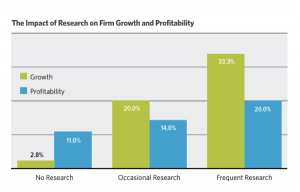
As a keynote speaker and executive coach, I am constantly asked by my clients “Rick how effective is virtual training?”
The answer depends on several different factors and preplanning is one of the most important factors of all in conducting an effective virtual training for your organization or team. In my experience there are four critical factors or key components that contribute to the success and effectiveness of a virtual training session.
4 Key Components of an Effective Virtual Training
-
Investing in Stable and Reliable Virtual Technology
With more employees around the world working remotely it is imperative that you invest in a reliable virtual platform. Some of the platforms we suggest are Zoom, WebEx, Join me, and Microsoft Teams.
Our company uses the professional version of zoom, however the most important thing for you to consider is using a platform that works best for your organization.
Some factors to consider:
- Whether the session is for a small group or a large audience.
- Whether the session requires live demonstrations or will it be mostly recorded content.
- Are there multiple ways to access the training session not just through a PC.
- The availability of tools that allow participants to send messages, answer questions and interact with the instructor and the other attendees.
These are just a few of the things to consider when choosing a platform to use for your virtual training.
-
Use Energetic and Skilled Professional Speakers and Trainers.
An effective virtual training session is highly dependent on the skills and energy of the speaker. The fact that the attendee is already in an environment that can be distracting is even more reason to hire a professional keynote speaker or trainer.
A skilled professional keynote speaker or trainer should be able to grab and hold the attention of the audience and encourage participation and engagement.
Simply put, the speaker is the person who must be able to facilitate the overall audience experience and steer the session in the right direction.
This is a specific skill set that you will not find in many speakers who are used to presenting in front of a live audience. Therefore, it is critical that the speaker knows how to engage a remote audience ensuring that the virtual training is effective and successful.
-
Have a Host or Co-Facilitator
There are several reasons to have a host or Co-facilitator with the most important being support during the training session. Many times, the speaker is so involved in delivering the material that they miss some of the attendee’s questions in real-time.
A host or Co-facilitator can collect the questions and have the speaker address them in a timely manner. This adds to the overall engagement and effectiveness of the program.
-
Develop Pre-Session Activities
A great way to build enthusiasm and interest in the virtual event is to get in touch with participants a few times in the weeks preceding the training. There are three pre-event activities that we utilize and have found to be effective in the success of the virtual training session.
-
Preprogram Video Promotion
Prior to a training session or conference, we send out a preprogram video to the organization and attendees to get them excited about the session. I give them an overview of what we will be covering and how it will positively impact them in their personal and professional lives.
-
Online Assessments
We have had a great deal of success conducting online assessments for the people who will be attending the virtual training session. The assessments give us insights on the environment of the organization and helps us to develop the presentation delivering an amazing ROI for our clients.
-
Survey and Polling Questions
Many times, we conduct survey and polling questions to better understand an organization’s needs. This helps us to personalize the program which increases its effectiveness. We have found that the surveys and polling questions help increase engagement among the attendees, which produces dramatic results.
When you address these four key factors in your virtual training sessions and meetings you will increase engagement, motivation, and success!
Business & Finance Articles on Business 2 Community
(13)








